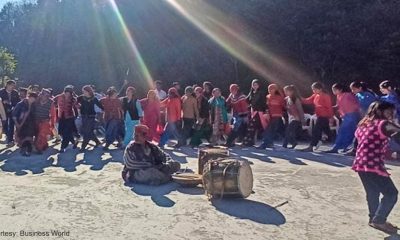Nation
“The Pandemic is a Wake-up Call for Regional Cooperation in South Asia” – SAPAN
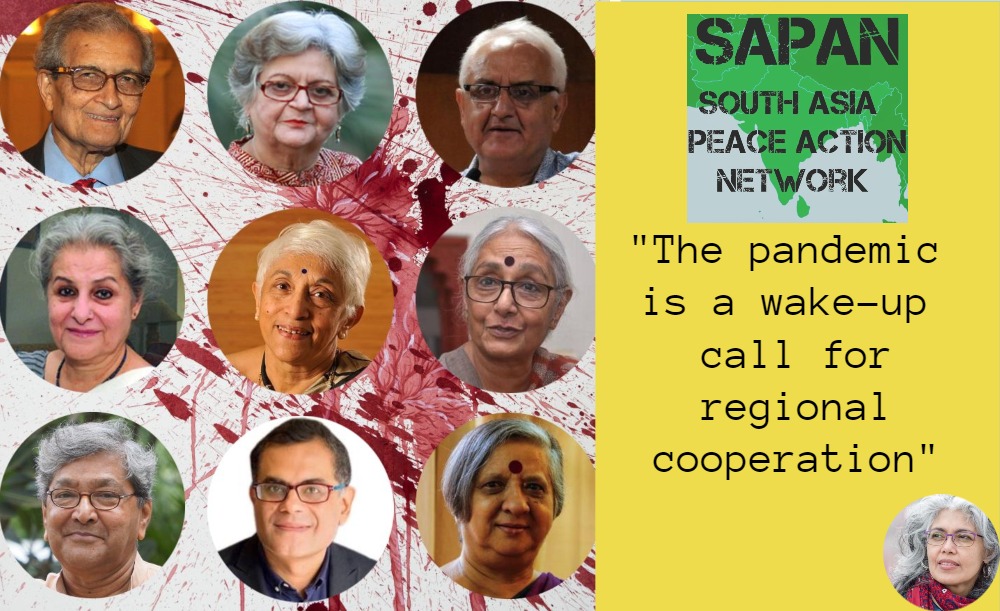
“We have to learn to maintain physical distancing but at the same time create economic and healthcare closeness in South Asia,” said Nobel laureate Amartya Sen, speaking at a webinar on South Asia’s response to the Covid-19 pandemic. The gathering also adopted a resolution describing the pandemic as a wake-up call for regional cooperation, and pressed for equitable vaccine supply across the region.
Stressing the need for contact and collaboration across South Asian borders, Prof. Sen said our battle is not just against the Covid virus but also against the economic injustice of hunger and poverty created by the pandemic.
Prof. Sen was among nearly 200 opinion-makers and activists from across South Asia and the diaspora who came together to attend the webinar titled: ‘South Asian Solidarity in the Time of Covid: Sharing Grief, Inspiration, Hope and Strategies’.
Academics, journalists, activists and doctors shared experiences and discussed strategies over the two-hour long event, organised by the recently launched South Asian Peace Action Network (SAPAN). The plenary session was followed by an interactive discussion with volunteers and healthcare professionals about their experiences on the ground.
Participants endorsed the SAPAN 30 May Resolution (link here), presented by journalist and editor Raza Rumi, calling on South Asian societies to treat healthcare as a basic human right, increase healthcare budgets, collaborate to manage the pandemic and plan responses to future challenges. “Our future cannot be held hostage to a past. We have to form an alternative trajectory for our combined futures,” Rumi said.
Speakers discussed the situation of South Asian countries in terms of vaccination drives, awareness-building, rural infrastructure and citizen participation.
Introducing the event Lalita Ramdas, founder Greenpeace India and a co-founder of SAPAN, said that participants had come together in solidarity and hope. Speaking from Alibag south of Mumbai, she said: “We will just not mourn but celebrate the people who came out of their comfort zones to fight this battle.”
Artist Salima Hashmi in Lahore spoke of friends consoling each other across borders. After the passing of human rights activist I.A. Rehman, she reached out to Dr Syeda Hameed in Delhi: “We cried together, shared a piece of music, wrote searing columns.”
Stating that the pandemic had urgently highlighted the need for South Asian regionalism, journalist Kanak Mani Dixit in Kathmandu said: “We comprise one-fourth of the world’s population, so what we do to combat Covid-19 is important for ourselves, but also for the rest of the world.”
In Rajasthan, Aruna Roy and Nikhil Dey, pioneers of India’s freedom of information movement stressed that calamities have no boundaries and we have to reach out to each other.
“So many people across South Asia have fallen into poverty because of the pandemic,” she said.
Dr Yousuf Sheikh, President of the Association of Pakistani Physicians in New England (APPNE) highlighted the cooperation between doctors from the region. Indian and Pakistani doctors in the diaspora were reaching out to each other he said: “Though I have never been to India I can imagine the situation there.”
The event featured a slideshow (link here) commemorating visionaries of the regional peace movement as well as prominent intellectuals, journalists, actors and activists taken by the coronavirus pandemic, including Dinesh Mohan of Delhi and Kamran Arif of Islamabad, both stalwarts of the Pakistan India People’s Forum for Peace and Democracy (PIPFPD).
The name of Dev Raj Sharma from Himachal Pradesh was also included in slide, he was an Ex-Councilor from Khalini ward in MC Shimla and an Ex-Chairman of the Himachal Pradesh Private Bus Operators Union.
“We may have lost many of our mentors and friends but not their ideas,” said an emotional Tapan Bose, founder member PIPFPD. “We will always be committed to creating democracy in the true sense, which is through the power and participation of the people.”
Participants also paid homage to veterans of the India Pakistan Soldiers’ Peace Initiative (IPSI) who have passed on over recent months. The IPSI was founded by the late Nirmala ‘Didi’ Deshpande, one of the leaders whose vision guides SAPAN. “This was a landmark initiative by Didi who tried to bring the world together with the slogan ‘jai jagat’ — long live the world,” reminisced Gen. (rtd.) Tej Kaul, chair of IPSI-India.
Journalist Ayesha Kabir in Dhaka described the Government’s attempts to suppress journalist’s efforts to expose corruption during the pandemic. “Whatever our political leanings, journalists were united when reporters like Rozina Islam were persecuted for their expose on the irregularities of the public health system.”
Convenor of the South Asia Media Defenders Network (SAMDEN) Sanjoy Hazarika in Shillong referred to media professionals as frontline workers who were “exposed to the physical threat of Covid… we have lost many colleagues to the pandemic.”
Activist Irfan Mufti in Lahore moderated the second session, chaired by Khushi Kabir in Dhaka, and Dr Syeda Hameed in Delhi. They set the tone for volunteers from India and Pakistan sharing inspirational personal experiences of working on the ground during the pandemic.
Samir Gupta from Delhi introduced volunteers involved with citizen relief groups working in both countries. The stories that emerged reflected a hope for humanity and were the fruition of the idea of neighbourly cooperation that activists in the region have been propagating.
The speakers highlighted their experiences of organising relief and coordinating with fellow volunteers across the border to help human beings not just citizens of particular nations, like Pakistanis at home and overseas coordinating with ambulances, hospitals, and crematoriums in India during the second wave.
Source: SAPAN @southasiapeace, Beena Sarwar, Rehmat Merchant, Waqas Nasir and other peace activists present at the session
Nation
Most Covid Restrictions to be Lifted From March 31, Mask and Hand Hygiene to Continue
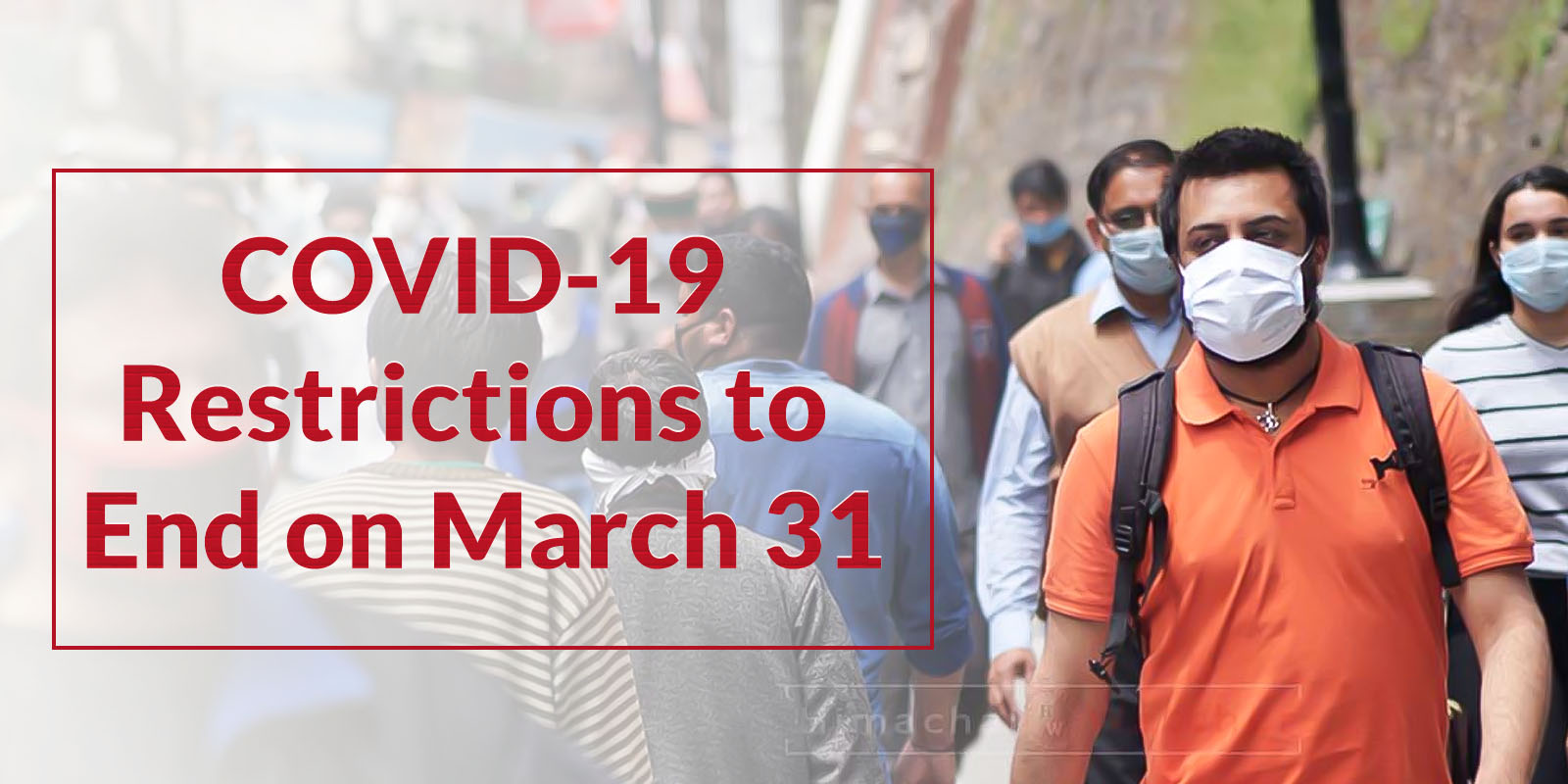
New Delhi-The Centre has issued a notification to the States informing that the provisions of the Disaster Management (DM) Act, 2005 will not be invoked in the country after March 31. The Union Health Ministry said that the use of face masks and following hand hygiene will continue.
It implies that most of the Covid-related rules and restrictions would end.
Union Home Secretary Ajay Bhalla issued the notification which said that the decision was taken following the overall improvement in the situation and the preparedness of the government in dealing with the COVID-19 pandemic.
However, local authorities and State police can still invoke fines and criminal cases against persons violating COVID-19 norms under the Indian Penal Code (IPC), a senior government official said.
The DM Act was invoked on March 24, 2020, due to the pandemic
“Over the last seven weeks or so there has been a steep decline in the number of cases. The total caseload in the country stands at 23,913 only and the daily positivity rate has declined to 0.28%. It is also worth mentioning that with the combined efforts, a total of 181.56 Cr vaccine doses have been administered,” the notification said.
“I would like to mention that in view of the nature of the disease, we still need to remain watchful of the situation. Wherever any surge in the number of cases is observed, the States/UTs may consider taking prompt and proactive action at a local level, as advised by MoHFW (Health Ministry) from time to time,” the notification said.
The Indian government had issued various guidelines and measures for the first time on March 24, 2020, under the Disaster Management Act to curb the COVID-19 situation in the country, which have been modified several times thereafter.
India currently has 23,087 active COVID-19 cases and recorded 1,778 new cases and 62 deaths in the last 24 hours. The daily positivity rate has also declined to 0.28%.
Nation
Vaccination of 15-18 Year Age Group in India from Jan 3, Precautionary Dose for Frontline Workers from Jan 10
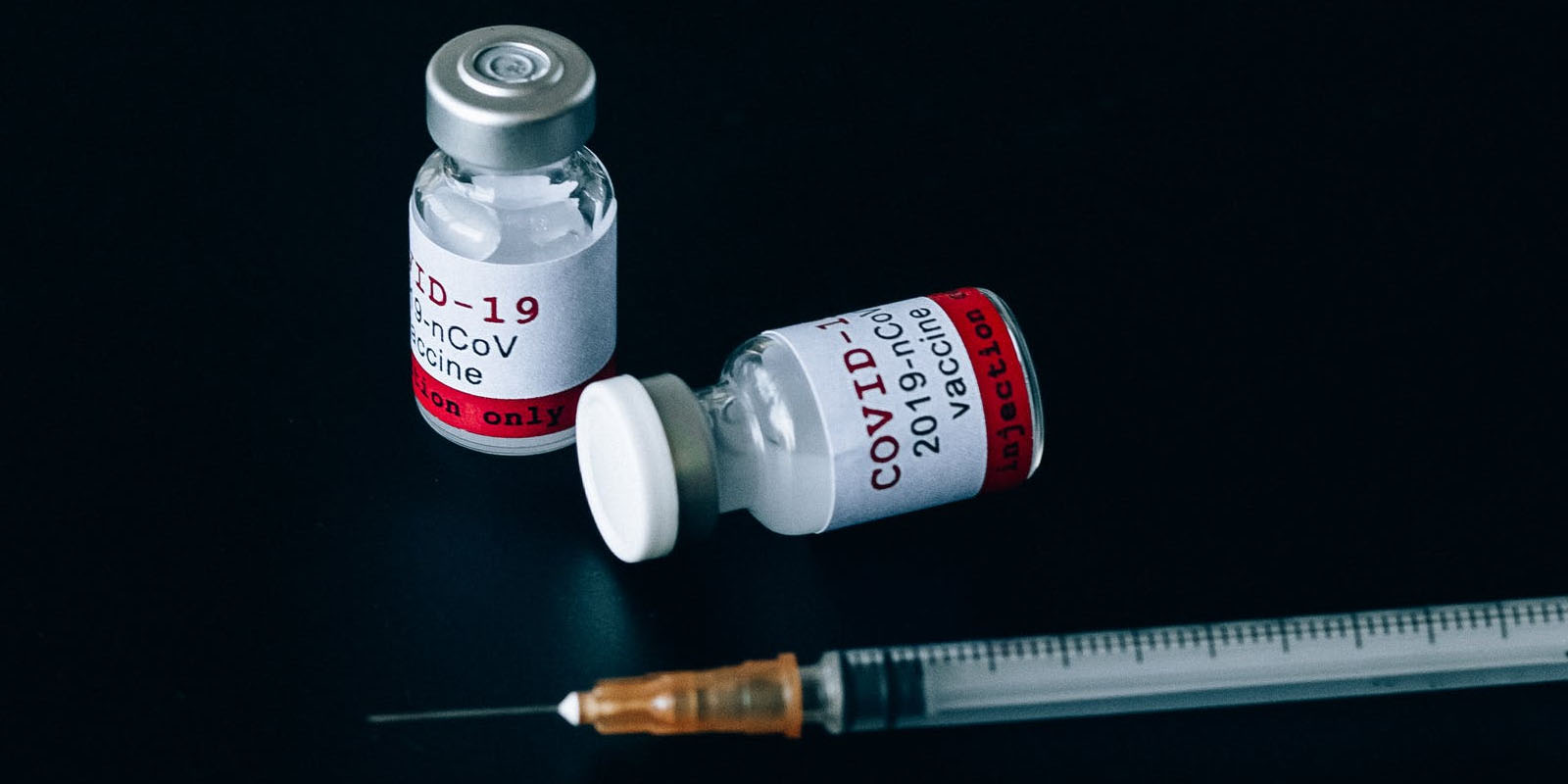
New Delhi-India will begin vaccination of the children in the age group of 15-18 years from 3rd January 2022. The move is likely to aid in education normalization in schools. The announcement was made by Prime Minister Narender Modi on Saturday evening. He also announced a precaution dose (booster dose) for healthcare and frontline workers from 10th January 2022, Monday.
In India, this has been called the ‘precaution dose’ not booster dose. An option of precaution dose will be available for senior citizens above 60 years of age with co-morbidities on the advice of their doctors from 10th January 2022.
Referring to the Omicron infections In India, the Prime Minister requested the people not to panic and to follow precautions such as masks and washing hands repeatedly.
According to the Government, the vaccination campaign started on 16th January this year has crossed the mark of 141 crore doses, and 61 percent of the adult population of the country has received both the vaccines and 90 percent of adults have received one dose.
According to the Government statistics, currently, the country has 18 lakh isolation beds, 5 lakh oxygen supported beds, 1 lakh 40 thousand ICU beds, 90 thousand ICU and Non-ICU beds especially for children, more than 3 thousand PSA oxygen plants, 4 lakh oxygen cylinders and support to states is being provided for buffer doses and testing.
The Prime Minister assured that soon the country will develop a nasal vaccine and the world’s first DNA vaccine.
Photo by Nataliya Vaitkevich from Pexels
Nation
Three Farm Laws to be Withdrawn, Announces PM Modi Ahead of Elections in Punjab and UP
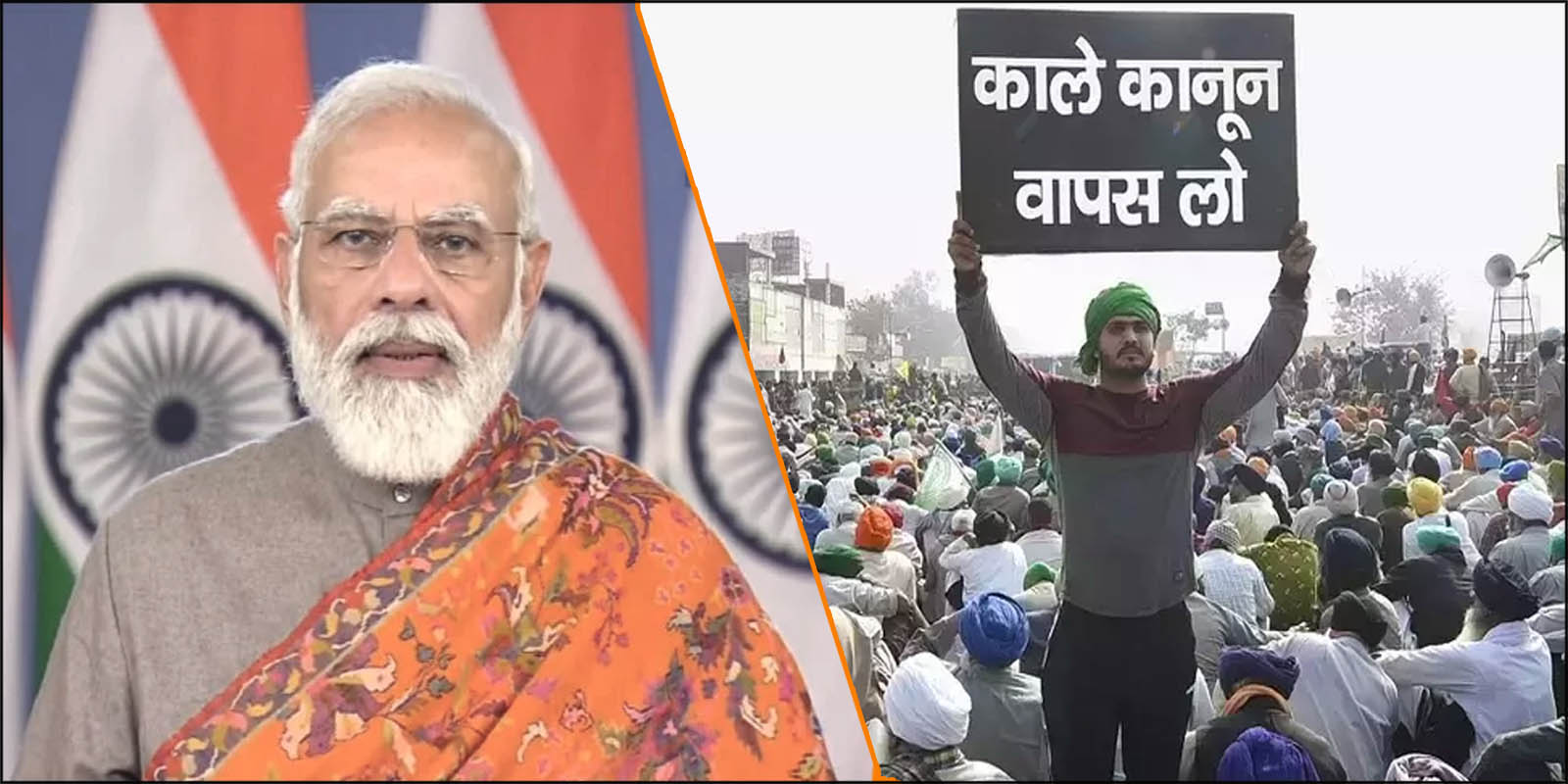
New Delhi: Ahead of assembly polls in Punjab and Uttar Pradesh, Prime Minister Narender Modi on Friday retreated from his stand on the three contentious farm laws and announced that the government will repeal three laws. He requested the protesting farmers to end the protest that has been going on for over a year now.
He said the three laws would be repealed in the winter session of Parliament starting later this month. He also said that though the laws were in the interest of the farmers, his government failed to convince them.
आज मैं आपको, पूरे देश को, ये बताने आया हूं कि हमने तीनों कृषि कानूनों को वापस लेने का निर्णय लिया है।
इस महीने के अंत में शुरू होने जा रहे संसद सत्र में, हम इन तीनों कृषि कानूनों को Repeal करने की संवैधानिक प्रक्रिया को पूरा कर देंगे: PM @narendramodi
— PMO India (@PMOIndia) November 19, 2021
The Prime Minister chose the occasion of Guru Nanak Jayanti to make this announcement. The decision is being perceived as an attempt to appease the farmers, especially in Punjab ahead of the assembly polls. Also, the results of by-poll held in various states are being seen as a setback to the ruling government that compelled it to reconsider its stand on the farm bills.
The Prime Minister said, “today I have come to tell you, the whole country, that we have decided to withdraw all three agricultural laws. In the Parliament session starting later this month, we will complete the constitutional process to repeal these three agricultural laws”.
It’s pertinent to mention that the Centre government had to announce a cut in taxes on petrol and diesel right after the results of bye polls were declared.
The three contentious bills are The Farmer’s Produce Trade and Commerce (Promotion and Facilitation) Bill, 2020, the Farmers (Empowerment and Protection) Agreement of Price Assurance and Farm Services Bill, 2020 and the Farmers’ Produce Trade and Commerce (Promotion and Facilitation) Bill.
The opposition Congress and farmers’ bodies have termed it a victory of their unity against the government’s decision. Former Chief Minister of Punjab, Captain Amarinder Singh was one of the first to welcome the decision through a Tweet.
Great news! Thankful to PM @narendramodi ji for acceding to the demands of every punjabi & repealing the 3 black laws on the pious occasion of #GuruNanakJayanti. I am sure the central govt will continue to work in tandem for the development of Kisani! #NoFarmers_NoFood @AmitShah
— Capt.Amarinder Singh (@capt_amarinder) November 19, 2021
यह जीत देश के किसानों की जीत है, लोकतंत्र की जीत है।
किसानों की जीत ने स्पष्ट कर दिया है- भारत में कभी तानाशाही हावी नहीं हो सकती, आखिर तानाशाह को झुकना पड़ा।#जीता_किसान_हारा_अभिमान pic.twitter.com/A9psOtBGq8
— Congress (@INCIndia) November 19, 2021


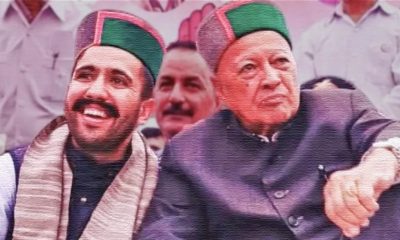

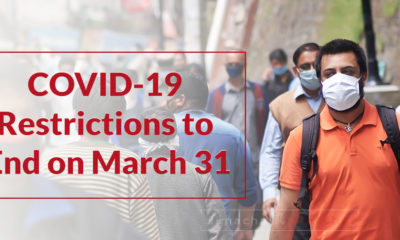

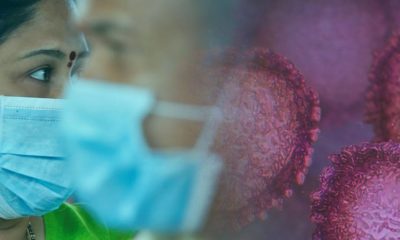





 Home Decor Ideas 2020
Home Decor Ideas 2020